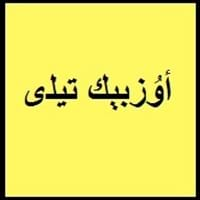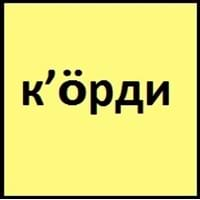Countries
Turkey, Uzbekistan
Iraq, Kurdistan
National Language
Afganistan, China, Kazakhstan, Kyrgyzstan, Russia, Tajikistan, Turkmenistan, Uzbekistan
Azerbaijan, Georgia, Iran, Iraq, Syria, Turkey
Second Language
Not spoken in any of the countries
Not spoken in any of the countries
Speaking Continents
Middle East
Middle East
Minority Language
Not spoken in any of the countries
Not spoken in any of the countries
Regulated By
Not Available
Not Available
Interesting Facts
- Uzbek is officially written in the Latin script, but many people still use Cyrillic script.
- In Uzbek language, there are many loanwords from Russian, Arabic and Persian.
- The vocabulary in Kurdish is of Iranian origin.
- In the middle East, Kurdish is the fourth largest ethnic group.
Similar To
Kazakh and Uyghur Languages
Farsi Language
Derived From
Not Available
Not Available
Alphabets in
Uzbek-Alphabets.jpg#200
Kurdish-Alphabets.jpg#200
Scripts
Arabic, Cyrillic, Latin
Arabic, Cyrillic, Latin
Writing Direction
Not Available
Right-To-Left, Horizontal
How Are You?
Qalay siz?
Tu çawa yî?
Good Night
Hayirli tun
Şev xweş
Good Evening
Hayirli kech
Evare baş
Good Afternoon
Hayirli kun
Nee-wa-rowt bash
Good Morning
Hayirli tong
Bayanit bash
I Love You
Sizni sevaman
Ez te hez dikem
Excuse Me
Iltimos! Menga qarang
Bê zehmet
Dialect 1
Tashkent
Northern Kurdish
Where They Speak
Not Available
northern Iraq, northern Syria, northwest Iran, southeast Turkey
How Many People Speak
Not Available
Dialect 2
Afghan
Central Kurdish
Where They Speak
Not Available
Iraq, Kurdistan Province of western Iran
How Many People Speak
Not Available
Dialect 3
Ferghana
Southern Kurdish
Where They Speak
Not Available
Eastern Iraq
How Many People Speak
Not Available
Native Name
أۇزبېك ﺗﻴﻠی o'zbek tili ўзбек тили (o‘zbek tili)
Kurdí / کوردی / к’öрди
Alternative Names
Annamese, Ching, Gin, Jing, Kinh, Viet
Not Available
French Name
ouszbek
kurde
German Name
Usbekisch
Kurdisch
Pronunciation
Not Available
Not Available
Origin
9th–12th centuries AD
16th century CE
Language Family
Turkic Family
Indo-European Family
Subgroup
Turkic
Indo-Iranian
Branch
Southestern(Chagatai)
Not Available
Early Forms
Chagatay
Not Available
Standard Forms
Uzbek
Kurdish
Language Position
Not Available
Signed Forms
Not Available
Not Available
Scope
Macrolanguage
Macrolanguage
ISO 639 6
Not Available
Not Available
Glottocode
uzbe1247
kurd1259
Linguasphere
No data available
58-AAA-a
Language Type
Living
Living
Language Linguistic Typology
Not Available
Subject-Object-Verb
Language Morphological Typology
Not Available
Not Available
All Uzbek and Kurdish Dialects
Most languages have dialects where each dialect differ from other dialect with respect to grammar and vocabulary. Here you will get to know all Uzbek and Kurdish dialects. Various dialects of Uzbek and Kurdish language differ in their pronunciations and words. Dialects of Uzbek are spoken in different Uzbek Speaking Countries whereas Kurdish Dialects are spoken in different Kurdish speaking countries. Also the number of people speaking Uzbek vs Kurdish Dialects varies from few thousands to many millions. Some of the Uzbek dialects include: Tashkent, Afghan. Kurdish dialects include: Northern Kurdish , Central Kurdish. Also learn about dialects in South American Languages and North American Languages.
Uzbek and Kurdish Speaking population
Uzbek and Kurdish speaking population is one of the factors based on which Uzbek and Kurdish languages can be compared. The total count of Uzbek and Kurdish Speaking population in percentage is also given. The percentage of people speaking Uzbek language is 0.39 % whereas the percentage of people speaking Kurdish language is 0.31 %. When we compare the speaking population of any two languages we get to know which of two languages is more popular. Find more details about how many people speak Uzbek and Kurdish on Uzbek vs Kurdish where you will get native speakers, speaking population in percentage and native names.
Uzbek and Kurdish Language Codes
Uzbek and Kurdish language codes are used in those applications where using language names are tedious. Uzbek and Kurdish Language Codes include all the international language codes, glottocodes and linguasphere.





